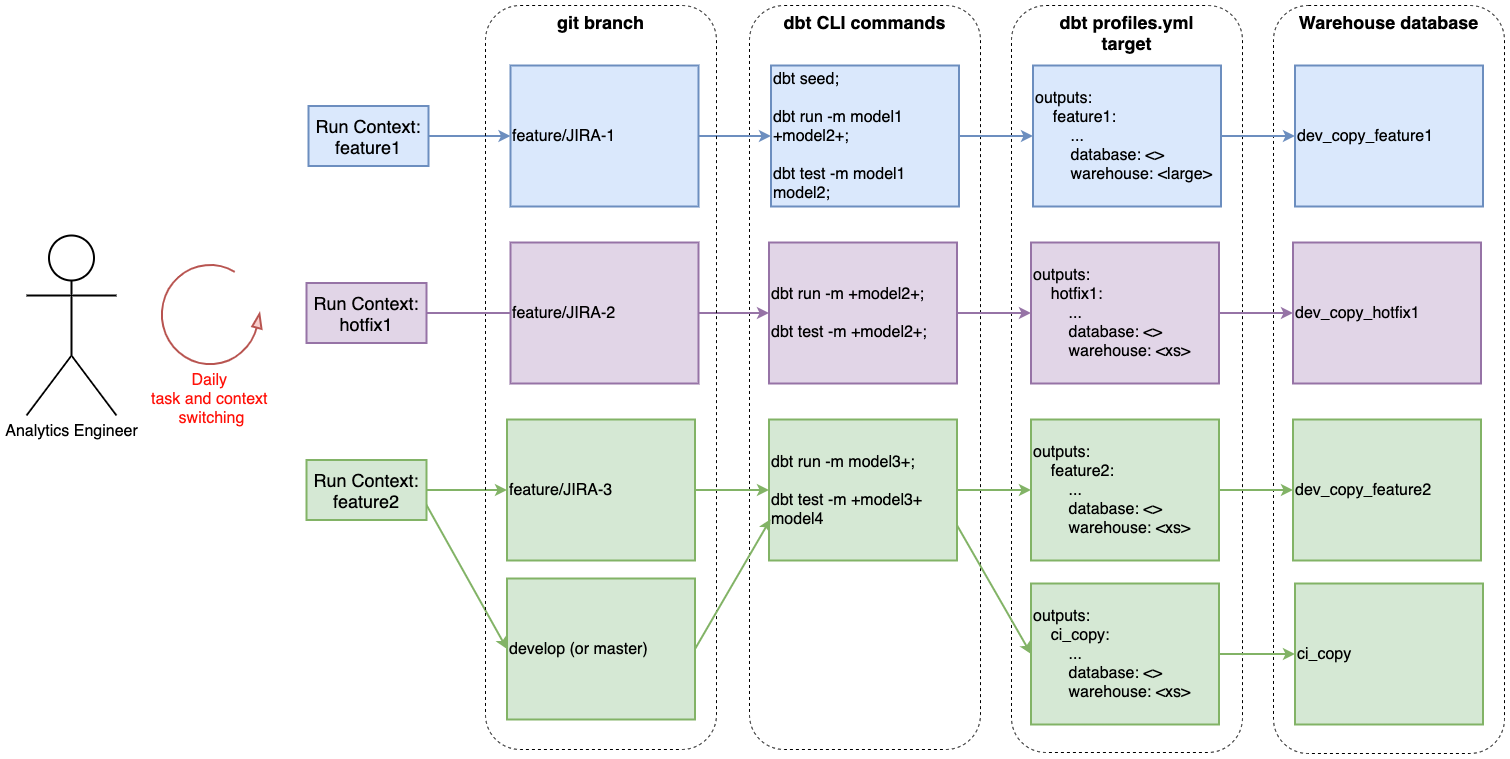This util helps manage dbt run configs so you don't need to keep searching through your command line history for the models to run for building and testing your dbt projects.
This is useful for when you are switching contexts between different work tasks.
During the day, you will often have to switch contexts between tasks e.g. features, hotfixes, environment refreshes, and code reviews.
Each context requires you to run different models, tests, from different branches, against different databases, with and without dbt seed/snapshot.
These utils help codify these contexts for easy switching to prevent human errors and increase development efficiency.
Currently this repo only prints the run command. The execution of running of dbt is yet to be implemented see: this issue
This method uses a Python script and accompanying config file. The task context is codified in the config file. You pass the name of the context into the Python script via the command line depending on which context you want to run.
You can use your favorite IDE features to make this easier. See IDE section.
💡 The main run script main.py expects the working directory to be the dbt repo root. i.e. it should be run from the repo root.
-
Install Python and Poetry
-
Clone this repo into your dbt project directory
-
The first time you run the script, it will copy the config template for you to
dbt_run_config_user.yml. -
Put your dbt run configs in
dbt_run_config_user.yml. Instructions are inside the file. This file does not need to be checked into git and is gitignored by default.
main.py expects a command line argument called --config which is the name of a config in dbt_run_config_user.yml
The config file provides the details of what dbt needs to run. The run script will be sensible if seed or models or test_models is set or unset.
💡 You should set one target (in the ~\.dbt\profiles.yml) for each config/context. This ensures you are using the right database and warehouse (compute) size for each task.
# Example to run a config called urbis from the command line
python main.py --config urbisDo what works for you. But if you need tips...
The idea is, you setup one PyCharm Run Configuration for one config in dbt_run_config_user.yml.
You then pass in the name of the config in the yml as an argument into the Python script main.py
Setup one run profile per config. The --config flag is what's passed into the Python script.
Ensure the working directory is set to the root of the dbt repo.
Duplicate, and add the next config.
Keyboard shortcut Shift + F10 (IntelliJ IDEA Classic keymap).




